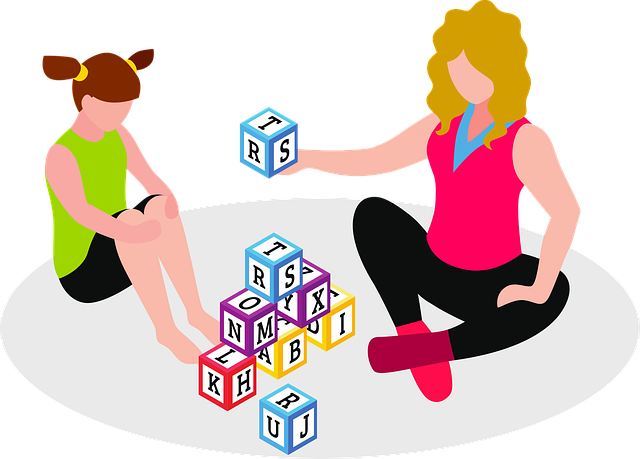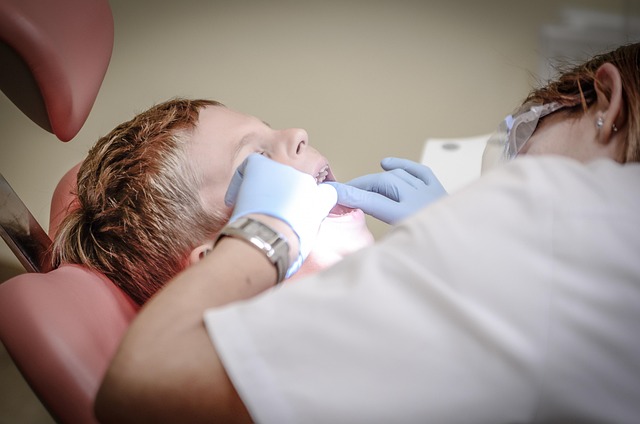Anxiety treatment for phobias involves a multi-faceted approach. Cognitive Behavioral Therapy (CBT), exposure therapy, and mindfulness techniques help individuals challenge negative thoughts and confront their fears gradually. Support groups provide community and encouragement, while alternative practices like meditation, yoga, and acupuncture complement conventional therapies. Medication, such as SSRIs, can manage severe anxiety, and lifestyle changes, including exercise and healthy habits, enhance overall well-being. Long-term strategies, including CBT and mindfulness, prevent relapse and promote emotional stability for effective phobia management.
Phobia-Specific Anxiety Treatments: Overcoming Fear with Comprehensive Care
Anxiety disorders, particularly phobias, can significantly impact daily life. This comprehensive guide explores effective treatments tailored to address specific phobias. From evidence-based therapies like Cognitive Behavioral Therapy (CBT) and Exposure Therapy to alternative approaches, each section delves into strategies to manage and conquer fear. Discover the power of mindfulness, support groups, medication, and lifestyle changes as powerful tools in the battle against phobia-related anxiety.
Understanding Phobias: Unveiling the Root Causes of Specific Fears

Phobias are intense, irrational fears that can significantly impact an individual’s life. Understanding the root causes of specific phobias is crucial for effective anxiety treatment. Many phobias develop as a result of traumatic experiences or as a response to overwhelming stress. For example, someone who had a negative experience with dogs might develop a fear of all canines. This fear can then manifest in various ways, from avoidance behaviors to full-blown panic attacks when confronted with the object of fear.
Cognitive behavioral therapy (CBT) is often recommended as an anxiety treatment for phobias. CBT helps individuals identify and challenge negative thoughts associated with their fears. By gradually exposing themself to the feared object or situation in a safe, controlled environment, CBT enables people to confront and overcome their phobias. This process, known as desensitization, allows individuals to learn that their fears are unfounded and reduce their anxiety responses over time.
Cognitive Behavioral Therapy (CBT): A Powerful Tool for Anxiety Treatment

Cognitive Behavioral Therapy (CBT) is a highly effective and evidence-based approach for managing specific phobias and related anxiety disorders. This therapy focuses on identifying and modifying negative thought patterns and behaviors that contribute to fear and anxiety. By challenging distorted thinking, individuals learn to replace irrational fears with more realistic and balanced perspectives, leading to significant improvements in their ability to cope with anxious situations.
CBT involves collaboration between the therapist and the individual, where they work together to set achievable goals and develop strategies tailored to their unique needs. Through various techniques, such as exposure therapy, relaxation training, and cognitive restructuring, CBT empowers individuals to face their fears gradually, reducing anxiety symptoms over time. This approach has proven successful in treating a wide range of phobias, offering long-lasting benefits for those seeking effective anxiety treatment.
Exposure Therapy: Confronting Fears to Overcome Phobias

Exposure therapy is a powerful and effective approach within phobia-specific anxiety treatments. This method involves gradual and controlled exposure to the feared object or situation, helping individuals confront and overcome their phobias. By facing their fears in a safe and supportive environment, patients learn to manage their anxiety responses and realize that their worst-case scenarios rarely materialize.
Over time, this therapy desensitizes individuals to the trigger, reducing the intensity of their anxiety symptoms. It empowers them to take control, understand their fear response better, and develop coping strategies. Exposure therapy is often combined with cognitive-behavioral techniques to address any underlying thought patterns contributing to the phobia, making it a comprehensive solution for anxiety treatment.
Mindfulness and Meditation Techniques for Managing Anxiety

Mindfulness and meditation techniques have emerged as powerful tools in the arsenal of anxiety treatments. These practices encourage individuals to focus on the present moment, observing their thoughts and sensations without judgment. By cultivating a non-reactive mindset, practitioners can reduce the impact of anxious thoughts and feelings. Regular mindfulness exercises have been shown to decrease symptoms of anxiety disorders, promoting a sense of calm and emotional balance.
During meditation, individuals learn to let go of ruminative thinking patterns that often fuel anxiety. Through guided meditations, they are led through controlled breathing exercises and visualisations to quiet the mind. This process allows for better management of anxious responses, enabling individuals to face triggers with enhanced resilience. Integrating mindfulness into daily routines can be a game-changer in the journey towards managing and overcoming anxiety-related conditions.
The Role of Support Groups in Anxiety Treatment

Support groups play a significant role in anxiety treatment, offering individuals suffering from various forms of anxiety a safe and understanding environment. These groups provide a platform for members to share their experiences, fears, and strategies for coping with anxiety-related issues. The sense of community and camaraderie can be immensely beneficial, as individuals realize they are not alone in their struggle. Members often gain valuable insights and encouragement from one another, fostering a supportive atmosphere that enhances the overall anxiety treatment process.
Regular participation in support groups allows individuals to learn effective coping mechanisms, gain different perspectives on managing anxiety, and develop a strong support network. This collective approach to anxiety treatment can be particularly powerful, as it encourages members to face their fears in a group setting, often leading to increased confidence and reduced symptoms of anxiety over time.
Alternative Therapies: Exploring Complementary Approaches

In addition to conventional therapies, exploring alternative and complementary approaches can significantly enhance anxiety treatment. Techniques such as mindfulness meditation, yoga, and acupuncture have shown promising results in managing specific phobias. These methods focus on calming the mind and body, reducing the physical symptoms often associated with anxiety disorders. For instance, mindfulness practices enable individuals to stay present and observe their thoughts without judgment, thereby lessening the impact of fear-inducing stimuli.
Complementary therapies also include various forms of art therapy, herbal remedies, and essential oils. Art can serve as an outlet for expressing and releasing emotions, while specific herbs and oils are believed to have calming effects on the nervous system. However, it’s crucial to consult healthcare professionals before incorporating these alternatives, especially when combined with traditional treatments, to ensure safety and effectiveness in anxiety treatment.
Medication Options: Prescribed Solutions for Severe Anxiety

For individuals dealing with severe anxiety related to specific phobias, medication can offer a much-needed relief and management tool. Antidepressant medications, such as selective serotonin reuptake inhibitors (SSRIs) and sertraline, are commonly prescribed to reduce symptoms of anxiety and depression. These drugs work by increasing the levels of serotonin in the brain, which helps regulate mood and emotions, ultimately easing anxious feelings.
The benefit of medication for phobia-related anxiety lies in its ability to provide a more consistent and long-lasting effect compared to therapy alone. Many find that combining medications with therapeutic interventions like cognitive behavioural therapy (CBT) enhances their overall treatment outcome, enabling them to confront and manage their fears more effectively.
Lifestyle Changes: Nurturing Mental Well-being for Effective Anxiety Treatment

In addition to professional therapy and medication, lifestyle changes play a crucial role in managing and overcoming phobia-specific anxiety. Nurturing mental well-being is essential for effective anxiety treatment. This involves adopting healthy habits such as regular exercise, mindfulness practices, and a balanced diet. Engaging in physical activity releases endorphins, which can reduce stress and improve mood. Mindfulness techniques like meditation help individuals stay present, manage their thoughts, and gain control over anxious feelings.
A consistent sleep routine is another critical component. Adequate rest allows the mind and body to recover from stressful events and promotes better emotional regulation. Additionally, reducing exposure to stressors, managing time effectively, and practicing relaxation techniques can significantly alleviate anxiety symptoms. These lifestyle adjustments create a supportive environment, enabling individuals to confront their fears with heightened resilience and a clearer mindset, ultimately enhancing the effectiveness of anxiety treatment.
Long-term Management and Prevention Strategies for Phobia-related Anxiety

Long-term management and prevention strategies for phobia-related anxiety are vital components of an effective, holistic approach to overcoming these intense fears. Beyond short-term therapy, individuals can employ various techniques to maintain their progress and prevent relapse. Cognitive behavioral therapy (CBT) provides lasting coping mechanisms by reframing negative thought patterns associated with the specific phobia. Regular practice of exposure exercises, even in safe, simulated environments, empowers individuals to confront their fears gradually.
Additional strategies include mindfulness meditation, deep breathing exercises, and stress management techniques that foster resilience against anxiety triggers. Building a strong support network and maintaining open communication with mental health professionals are also key. Engaging in regular physical activity, adopting healthy eating habits, and prioritizing adequate sleep contribute to overall well-being and emotional stability, thereby reinforcing the effectiveness of anxiety treatment.
